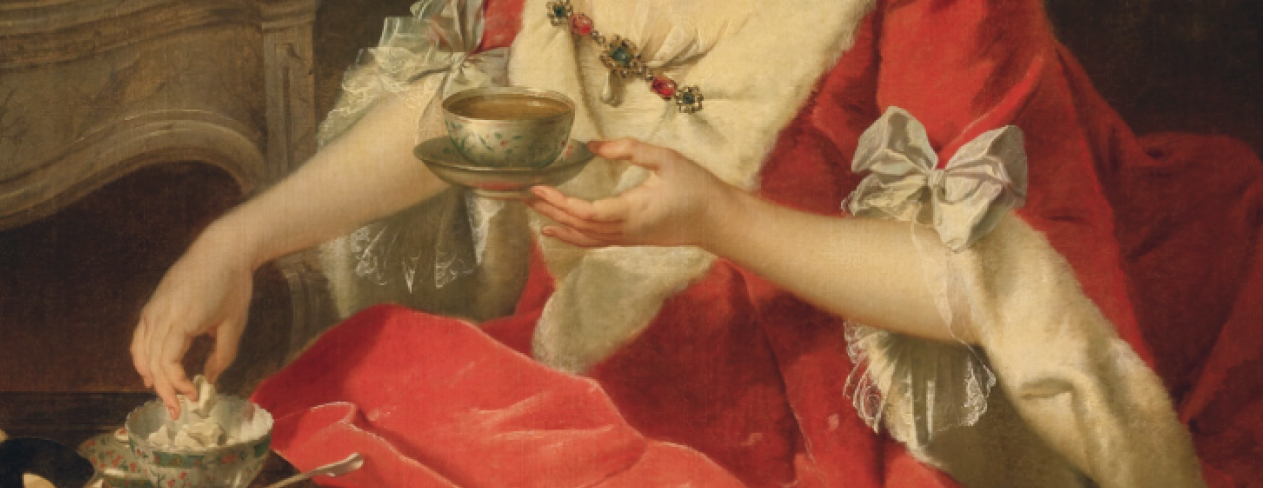
From the very beginning, my scheme required Marianne to reach the point where she is keen to consider the effect of herbal remedies as part of her investigation (and, furthermore, to support her own problematic recovery). Tea as a medicine seemed to provide the best opportunity for her to encounter Doctor von Störck, the renowned chemist.
In the 18th century, tea was widely known in Europe due to the booming fashion Baroque Chinoiserie, which admired all things oriental. Despite being increasingly consumed, tea was rather seen as an exotic fancy, which fell in and out of fashion several times. In the Viennese court, the custom is for the most part unevidenced, but green tea was generally preferred to black. According to the shipment bills, tea was more expensive than coffee but cheaper than chocolate.
As a tea person myself, I cannot help but take this chapter a bit personally. Much to my regret, I had to abandon the idea of introducing flowering tea in the further tea-drinking scenes. The sweet clip in Marie Antoinette by Sofia Coppola is very enchanting but, I am afraid, historically irrelevant.
Access to the Metatext via placing an order for an augmented product. See Terms of Use